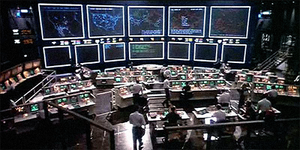High-seas piracyNew anti-piracy tool: 1,000-participant Internet wargame
The U.S. Navy is recruiting a community of more than 1,000 players from across the U.S. government to collaborate on solving real-world problems facing the U.S. Navy: high-seas piracy; the participants will be asked to suggest ways to combating piracy off the coast of Somalia

ONR will run a 1,000-player internet game to develop strategy // Source: tested.com
The Office of Naval Research (ONR) is set to launch on 16 May a new Internet wargame, recruiting a community of more than 1,000 players to collaborate on solving real-world problems facing the U.S. Navy.
Scheduled to run for three weeks, the Massive Multiplayer Online Wargame Leveraging the Internet (MMOWGLI) exercise will recruit online players from across the government to suggest ways of combating piracy off the coast of Somalia.
“MMOWGLI is an online game designed to find and collectively grow breakthrough ideas to some of the Navy’s most complex problems — those 21st-century threats that demand new forms of collaboration and truly outlying ideas,” said Dr. Larry Schuette, ONR’s director of Innovation, whose office is managing the project.
An ONR release notes that officials said the piracy scenario was chosen as a means to demonstrate the platform, but MMOWGLI itself can be applied to any scenario.
ONR intends to produce varying results from a diverse group of players drawn from the ranks of academia, defense, and government and nongovernment organizations. The plan is for MMOWGLI to identify solutions to difficult challenges by tapping into the intellectual capital of a broader community.
“We hope MMOWGLI will help us to understand what happens when your insights are combined with the observations and actions of another player,” Schuette added. “Will that fusion result in a game-changing idea or solution, or will the MMOWGLI platform teach us something about our traditional thought processes?”
MMOWGLI will also be a template for aiding future users faced with their own complex problems, said Garth Jensen, director of innovation Naval Surface Warfare Center Carderock division, who is leading the project.
“At this stage, however, MMOWGLI is a simply a pilot/demonstration project,” Jensen said. “Therefore, we are exploring whether doing something like MMOWGLI within Navy is feasible, and if so, what we might learn from the experience.”
Palo Alto, California-based Institute for the Future (IFTF) and the Naval Postgraduate School are partnering with ONR on the MMOWGLI project.
An IFTF release notes that this new kind of game spans hierarchical ranks, crosses organizational divides, and harnesses diverse expertise. IFTF Research Director of Human-Future Interaction Jason Tester said that the institute has worked closely to consult with ONR and NPS to helping them design a game environment that tests not only the limits of the software but also the basic premise of the crowdsourced strategy.
“I’m eager to see how network dynamics, social media and collaborative tools can reshape the way we approach thorny world security problems.” said Jason.
